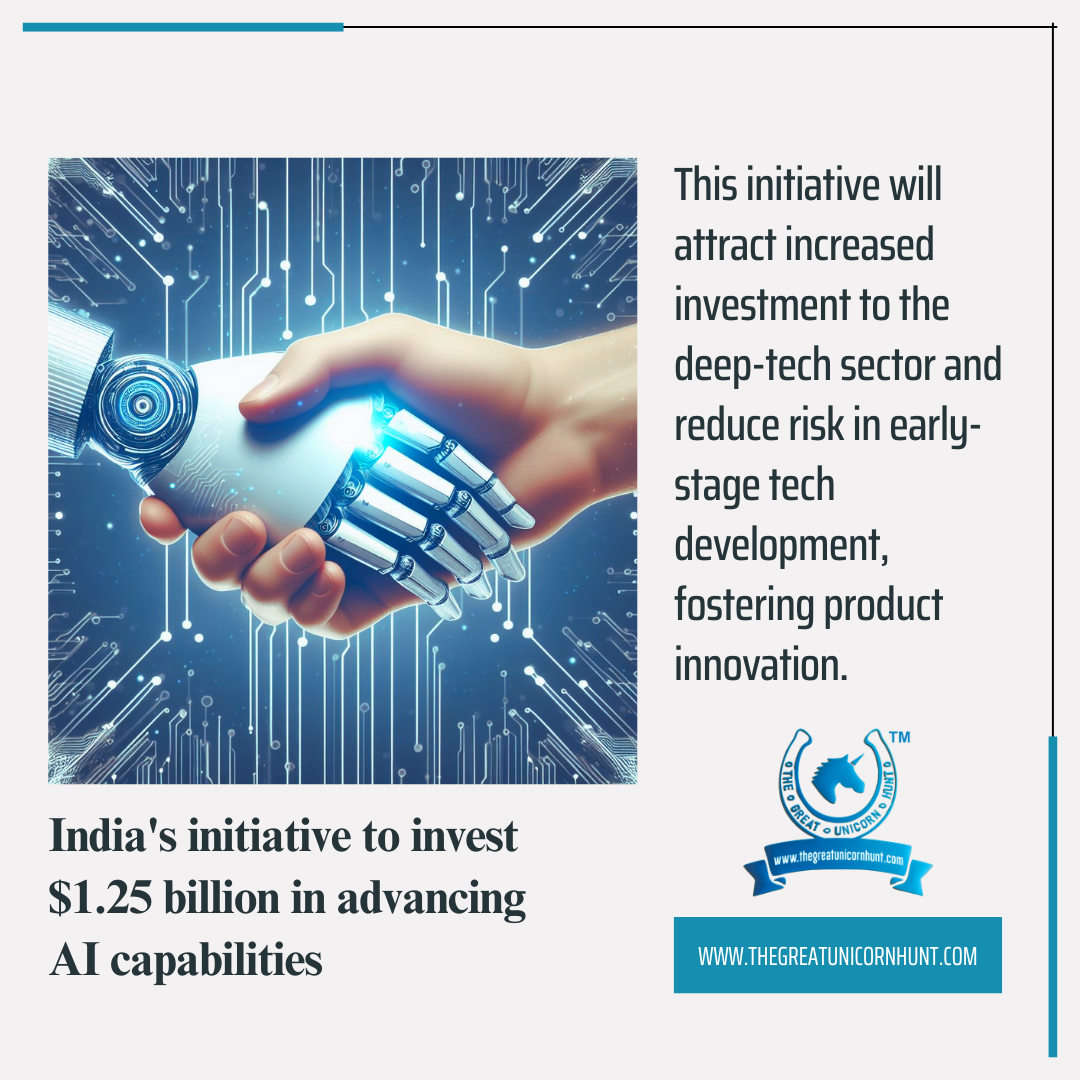
India is making substantial strides in enhancing its artificial intelligence (AI) capabilities with a significant investment of US$1.25 billion (Rs 10,372 crore), as outlined by nature.com. This investment aims to fortify the nation's computing infrastructure and establish an accessible data repository, marking a pivotal advancement in India's AI ecosystem.
Implemented through public-private partnerships, the IndiaAI Mission aims to develop a computing capacity of 10,000 or more Graphics Processing Units (GPUs) over the next five years. This initiative will also create a platform containing non-personal data, including environmental data, to support Indian Startups and researchers.
The investment will further facilitate the development and deployment of Indian-built AI models and provide funding for deep-tech AI Startups. Additionally, guidelines and governance frameworks for ethical and responsible technology will be established, alongside the establishment of data and AI Labs outside major cities.
India's AI market, experiencing a compounded annual growth rate of 25-35%, is projected to reach US$17 billion by 2027, driven by a growing AI workforce and increased investments in generative AI.
According to Sanghamitra Bandyopadhyay, Director at Indian Statistical Institute, Kolkata, this initiative will generate essential national computational resources required for scalable AI research, addressing the limitations faced by individual institutions.
Bandyopadhyay also emphasizes the importance of the data platform in bridging the gap in access to high-quality data, particularly for AI-based research in genomics and proteomics. The focus on deep-tech Startups aligns with the country's deep-tech policy, with around 3,000 such Startups making up 12% of India's startup ecosystem.
Aridni Shah, co-founder of immunitoAI, views the investment as a promising start, considering the trend in the venture capitalist ecosystem to prioritize government-supported sectors. She anticipates increased investments in the deep-tech sector, leading to product innovation and risk mitigation in early-stage tech development.
Indervir Singh Banipal, a software engineer at IBM, recommends a comprehensive environmental impact assessment for the mission, considering factors like energy consumption and waste generation associated with AI operations. This proactive approach can help minimize the ecological footprint and promote sustainable practices in AI development.
Source: https://www.nature.com/articles/d44151-024-00035-5


 Login
Login Sign-up
Sign-up